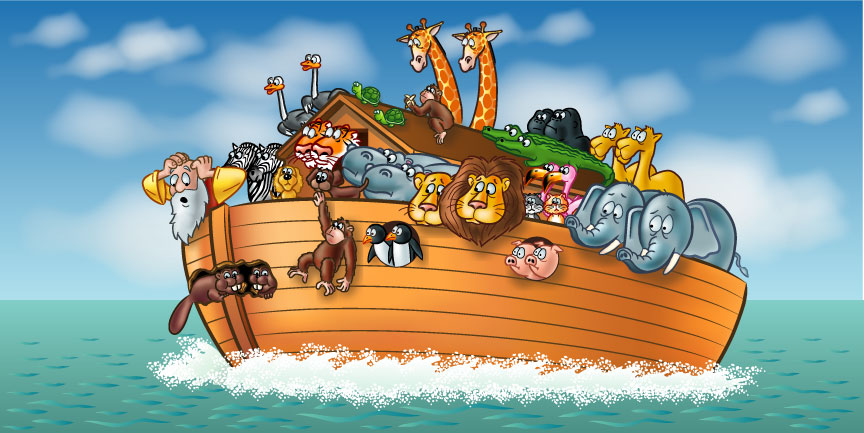There has been some talk about the Noah movie on the Internets. For some reason the majority of the
talk (whining and complaining) is coming mostly from Christians, but what else
can you expect? Apparently a part of our faith is to whine and complain at every
possible opportunity.
I gave a cursory glance at some of the complaints. Here is a
dramatic recreation of some of them from Facebook and Twitter:
it isn’t accurate
it is heretical
it isn’t accurate
it is showy
I stubbed my toe
going to see this movie
it isn’t accurate
One of the recurring complaints is that the movie is not
accurate to the text. I wonder if those same folks complain with the basic
children’s Bible version of the Noah story. Those are stories that usually
depict a two-dimensional, smiling Noah (bald with a beard) building an ark,
smiling while all the animals get on the ark, smiling while it rains, and
smiling when the rain stops and everyone gets off of the ark and smiling when
looking at a rainbow in the sky. I have looked at a number of different
translations, looked and the Hebrew, and nowhere in the text do I see that Noah
is smiling. Conclusion: Children’s Bibles are heretical and should be burned
because they are not accurate.
My friend Scott Paeth made the astute observation that if
the movie was going to be “scripturally accurate” it would be very short
because it is not a very long story. I respectfully disagree because, as
Stephen Colbert pointed out in his interview with the Darren Aronofsky (the
director of Noah) they did make three
movies out of The Hobbit.
So I guess the message that many conservative, evangelical
Christians are trying to get across is that we are not supposed to trust the
move because it is not biblically accurate, or at least that is what we are
told. What I think is closer to the truth is that many Christians are claiming
that they are not supposed to trust the movie because it does not tell the
story that they want to hear. Or more specifically, the movie is not telling
the Noah narrative that a conservative stream of Christianity is used to
telling (not enough killing and anger and judgment?).
Remember when that wonderful, happy, and horribly inaccurate
movie The Passion of Christ, directed
by Mel Gibson came out? There were many added sections to the narrative that
could not be found in scripture. Yet it was embraced by most conservative
evangelical Christian circles as a “powerful and moving telling of Christ’s
suffering.” Not because it was so close to the Bible story, or because it was
historically, because neither is the case. It was embraced more because it told
a narrative of Jesus’ crucifixion that conservative Christians liked to tell.
One that involves lots, and lots, and lots of the color red.
Let’s be honest, it is not about Biblical accuracy – it is
about telling the story you want to hear.
No one has a monopoly on the stories of the Bible,
especially when they pervade our popular culture in many ways. People are going
to take stories from Scripture and retell them in religious and non-religious
contexts. If you don’t like it, go live in a culture that imposes laws and
restrictions on people using religious stories in popular culture. There are
countries where that occurs and maybe you would be happier in such places.
On the other hand, why not go and watch the movie, but first
do some work. Read the Noah story (Genesis 5:28 – 10:32) and ask how you read
this story. What are the major themes that jump out at you? What can you say
about God based on the way you hear and engage this story? What can you say
about Noah and the other characters in the story? How do you engage with the
narrative? Have a good idea how you hear this story and then go and watch the
movie looking for the differences and similarities in the hearing and telling
of the story. Don’t go to see “what really happened,” but go to be pushed and
challenged and maybe inspired.
If nothing else, enjoy the popcorn with a boat-load of
butter.

1 comment:
This is good writing; it is playful yet profound.
I will see it when it comes out on xfinity. How an Atheist could a film about the flood without it being merely a cynical financial undertaking remains to be seen.
Post a Comment